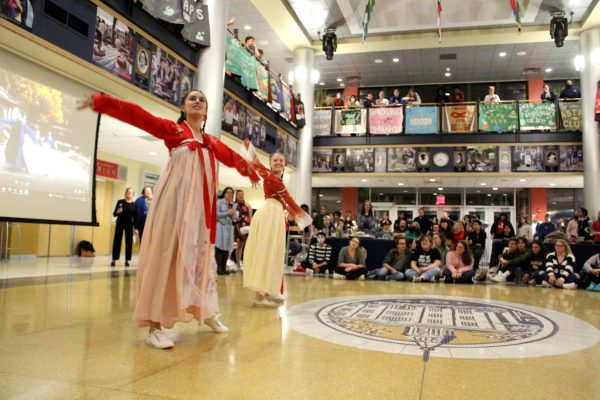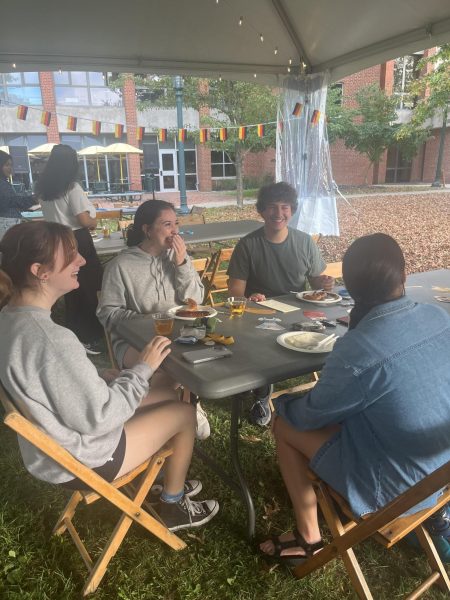Local Brit reflects on the life and death of the Queen
On Sept. 8, for the first time in my life, I saw the words “His Majesty the King” in reference to the reigning monarch of my home country, the United Kingdom. My mother remembers sitting on her mother’s lap as the news came over the radio in February 1952 that George VI had died and remembers her mother’s intense reaction. George VI’s death was a surprise; his cancer diagnosis had not been widely reported and he was only 56.
His daughter, Elizabeth II, died this month at 96 after a 70-year reign. News reports had been coming throughout the day that she was ailing, under medical care and that her family was flying to Scotland to be with her. So the news she had died was both not a shock and yet still weirdly affecting.
I was in the library when the news came that the Queen had died. I felt overcome with emotions I was not expecting and I excused myself from the meeting I was in. Colleagues came to my office to see how I was doing. One offered to make me a cup of tea. I found that act, and the hot beverage that soon appeared at my desk, oddly comforting. Later that evening I received a message from a student: “im sorry for your loss.” I sincerely appreciate those gestures of care. All of this for a person I have never even seen in real life, let alone met or interacted with.
The Queen was both a person and an institution. She had existed my entire life, and had been queen for 20 years when I was born. There is one other reigning queen in Europe, Margrethe II of Denmark, who has been on her throne for 50 years, and within my lifetime there has been a reigning queen in the Netherlands; but to most of us, “The Queen” has only ever meant one person. In his touching tribute, President Emmanuel Macron of France acknowledged this: “To you, she was your Queen. To us, she was The Queen.”
The Queen is dead, long live the King? “The King” just doesn’t have the same ring to it, and I doubt it will carry the same resonance. For one thing, Elvis Presley is already “The King.” I don’t see Charles III changing that.
As a British immigrant to the United States, I am both a proponent of a representative form of government and a cultural monarchist. I am not suggesting that monarchies should be established in places where they do not exist and are not wanted, but culturally, I respect and find comfort in the traditions of service and commitment to principle that the modern British monarchy represents. I also see the value of having a head of state who rises above politics. Certain other nations of my acquaintance could benefit from that. I am both a citizen of the United States and, at least in my heart, a subject of the British Crown.
I am also an historian. I know the histories of inequity and injustice perpetrated by monarchies around the world and across time. I know the ugly imperial and colonial history of the British monarchy. I see social media posts from citizens of post-colonial nations suggesting that their relationship to “The Queen’’ and “Her Majesty’s Government” is much less complicated — it reflects a history of subjugation and oppression. The very cup of tea that so comforted me as I processed the news of the Queen’s passing is a symbol of that history — tea is deeply embedded in the UK’s imperial past. And I know that the British monarchy desperately needs an update for the 21st century. But as “the Queue” became a pop up cultural phenomenon of its own, I texted my friends that I am “so proud” of “my people” waiting in a line five miles long to view the Queen’s coffin.
I do not know if the British Monarchy will long survive the death of The Queen. I don’t know if it should. But the monarchy has been counted out before and it has survived for almost a thousand years at this point, if we start with William the Conqueror. Monarchy as an institution is thousands of years older still. It has adapted and changed, has weathered coups, crises, madness, incompetence and unpopularity. So maybe I am wrong — maybe the deeply embedded, global cultural significance of “The Queen” will translate to “The King.” Maybe Elvis will have to take second place after all.
The author’s views and opinions are not an official statement of the College.








